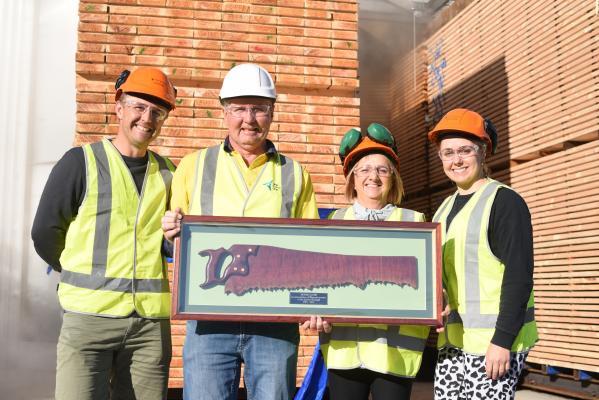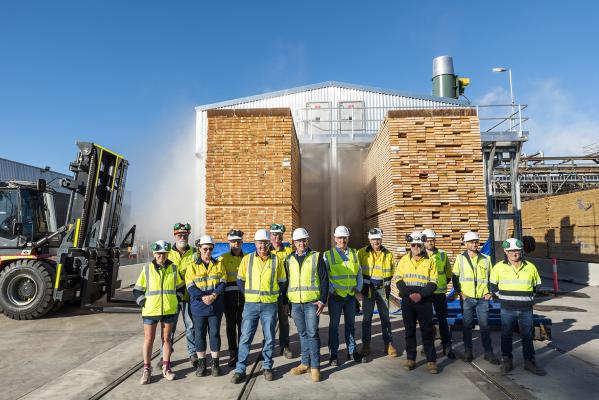
By Brett Kennedy
ROGER Davis still recalls walking onto the Jubilee Highway timber mill for the first time 50 years ago as a long-haired, skinny kid looking to work alongside his father and brother.
Manual production and lax safety procedures were far more common in 1971, with Mr Davis recalling how he made it through more than half of day one without being approached by anyone questioning his presence.
Fast-forward five decades and Mr Davis is treasured by the now-OneFortyOne managed sawmill for his expertise and site knowledge, having worked across the entire site throughout his career and in recent years serving as kilns manager.
With his retirement looming, Mr Davis was given the honour of recently switching on the first of two new Continuous Drying Kilns (CDK) at the site, which will replace the existing old batch kilns with more efficient and environmentally conscious biomass fuelled system.
The $16m two-stage investment has been hindered by COVID-19 complications, including key staff unable to leave New Zealand to progress the upgrade, which was originally due for completion in March last year.
With construction of the second kiln set for completion by Christmas, OFO Jubilee Sawmill general manager Paul Hartung said CDK techology was considered state-of-the-art as the kilns produce higher-grade timber, with less energy and downtime.
“As the name suggests, the Continuous Drying Kilns operate nonstop, moving product through continuously and maintaining and ideal temperature,” Mr Hartung said.
“The efficient design is powered by biomass, using sawdust and wood waste, and shares heat between two chambers with no need to turn the kiln off.
“There’s no cooling down and reheating like in the old batch kilns – meaning more product processed with less energy.”
The batch kilns operated at temperatures in excess of 160 degrees and took around eight hours to process timber, an aggressive process according to Mr Hartung.
Recalling how he worked on kiln technology dating back to the 1950s during his career, Mr Davis said the latest technology made a significant difference for operators.
“With the batch kilns there is a lot more manual operation from the kiln operators,” Mr Davis said.
“Whereas this (CDK) kiln is basically just load the timber on the in-feed and it works its way through.”
Mr Davis was given the honour of starting the new kiln on March 30, joined by his wife Carol and children Craig and Nicole for the honour.
“I’m glad I’ve stayed on because I just wanted to see this kiln going,” Mr Davis said.
The first kiln has the capacity to dry 240,000 cubic metres of timber per year, with capacity to double once the second kiln is commissioned.
The retired batch kilns operated for 10 years, with a total drying time of 332,000 hours and produced four million cubic metres of dried timber.
The CDKs are energy neutral as they are fuelled by biomass, sawdust and wood waste.








